Florida boasts one of the highest Caribbean populations in the entire United States of America. According to the latest census data, nearly one-third of Broward County’s residents are of Caribbean descent. This demographic includes both first-generation immigrants and their descendants, who have established deep roots in the region.
The migration of Caribbean people to Broward County dates back several decades, driven by various factors including economic and political instability, and natural disasters. Over the years, immigrants from Jamaica, Haiti, Trinidad and Tobago, the Bahamas, and other Caribbean nations have settled in Broward County, bringing with them rich cultural traditions and a strong sense of community. It’s no surprise that the Caribbean way of life has been seamlessly woven into the fabric of Floridian life, especially Caribbean attitudes towards water conservation.
The Caribbean region is renowned for its stunning beaches, vibrant marine life, and lush landscapes, but it is also unfortunately known for being a hotspot for natural disasters. Its vulnerability to climate change has put significant pressure on its water resources and, despite being surrounded by water, Caribbean nations face unique challenges to water conservation. As a result, they’ve developed strategies that have been tailored for both freshwater and saltwater conservation.
Challenges:
Natural Disasters:
Natural Disasters have left deep and distinctive scars on the lives of many Caribbean people and Americans alike. To this day we hear stories of the havoc that was wrecked by the infamous hurricanes Gilbert and Katrina in 1988 and 2005 respectively. Hurricanes threaten the infrastructure of the water sector, and it is often the norm for the taps to be completely shut off during the calamitous event, as the strong winds and heavy rainfall can burst pipes and contaminate the water supply.
Due to the frequency in which Caribbean people have had to live without water for in many cases, prolonged periods, which is no small feat. Over the years, water conservation practices have been passed down and embedded into the way of life for those of Caribbean heritage. Some of these practices include using greywater to flush toilets and water plants.
When the water supply from the pipes is shut off, this means that people have to resort to using water that has been stored in tubs or bottles, which paints a clearer visual picture of exactly how much water one uses in their day-to-day life. When water is flowing freely from pipes, it is easy to think of it as an infinite source or to not think of it at all. Caribbean people always have water at the forefront of their minds, because natural disasters have shown them that potable water is in fact not an infinite resource.
Saltwater Intrusion:
Rising sea levels and over-extraction of groundwater cause saltwater to move onto land, contaminating freshwater reserves and rendering them unfit for consumption. This is also detrimental to agriculture due to the chemical structure of saltwater which depletes the soil of nutrients. In fact, saltwater intrusion is one of the significant hurdles of Broward County in ensuring a sustainable and resilient water future.
These challenges are not unique to the Caribbean. Geographically, the Caribbean and Florida have much in common as both regions are facing mounting stress in sustaining a secure water future. Here are some strategies from the Caribbean community that we can implement:
Freshwater & Saltwater Conservation Strategies:
Rainwater Harvesting
Caribbean people have had to be creative and proactive in their approach to water conservation. Climate change has led to prolonged drought periods and inconsistent water supply during hurricanes, prompting them to develop and implement measures to collect and conserve water. Rainwater harvesting systems can capture and store rainwater for various uses, including irrigation, landscaping, and non-potable household purposes.
Rainwater is collected from the roofs of buildings and can be stored in groundwater tanks or surface ponds, ensuring peace of mind, even in the dry season.
Efficient Water Usage:
On an individual level, you can help to mitigate the water crisis by switching to more water-efficient toilets. The first step to upgrade to a high-efficiency, WaterSense toilet and get $125 back!
Click here for more information.
Public Awareness and Education
Broward County is fortunate to have one of the safest drinking water supplies in the world, thanks to protected Wellfields. Water must be seen and treated as our most valuable resource to mitigate climate change. When we make a concerted effort to improve our water efficiency, we drastically reduce demands on existing sources and infrastructure, and reduce our vulnerability to drought and the dry season. Public awareness campaigns can foster a culture of responsible water usage by educating people about the importance of water conservation.
In the face of mounting water challenges due to climate change, residents of Broward County have no choice but to follow the example of our neighbors in the Caribbean by adopting a multi-faceted approach to water conservation. This approach addresses the unique dynamics of both freshwater and saltwater resources. By implementing a combination of innovative technologies, sustainable practices, and community engagement initiatives, we can safeguard water resources for future generations.
References:
American Immigration Council. Immigrants in Florida, https://www.americanimmigrationcouncil.org/research/immigrants-florida
Climate Studies Group, Mona (CSGM), 2012: State of the Jamaican Climate 2012: Information for Resilience Building (Full Report). Produced for the Planning Institute of Jamaica (PIOJ), Kingston Jamaica.
Environmental Permitting Division. Wellfields, https://www.broward.org/Environment/Wellfield/Pages/Default.aspx
Jeanne Batalova Jane Lorenzi and Jeanne Batalova. (2023, July 17). Caribbean immigrants in the United States. migrationpolicy.org. https://www.migrationpolicy.org/article/caribbean-immigrants-united-states
The Second National Communication of Jamaica To The United Nations Framework Convention on Climate Change 2011 http://unfccc.int/resource/docs/natc/jamnc2.pdf
USDA Climate Hubs. Saltwater intrusion: A growing threat to coastal agriculture, https://bit.ly/4aJS51Y

